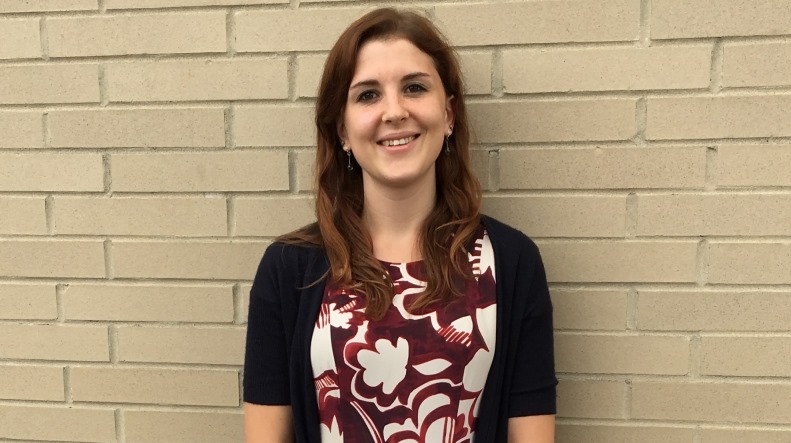
Innovations like cochlear implants may help the deaf hear, but they aren't necessarily an intervention the deaf patient wants a physician to prescribe.
Wayne State University School of Medicine medical student Tabitha Moses explores the problems associated with "fixing" individuals who may not consider themselves "broken" in her essay, "Redefining Treatment: Shifting Our Understanding of Our Patients' Needs," published last month by In-Training.org, a peer-reviewed online journal written for and by medical students.
Moses, an M.D.-Ph.D. candidate, starts her second year of medical school July 31.
"The problem discussed in the piece is one I have been thinking about for a while. I have been interested in deaf culture since high school, when I took evening classes in British Sign Language. In learning about deaf culture, I learned about the controversies associated with cochlear implants and the way in which people who are deaf are often treated badly," she said. "In college I gained a greater insight into the issues surrounding disability and the concept of neurodiversity."
Neurodiversity is an approach to learning and disability that argues diverse neurological conditions are the result of normal variations in the human genome. The movement originated in the late 1990s.
"In listening to people in those communities speak out against the way they are often treated by physicians, I wanted to make sure that I develop the insights to ensure I did not contribute to the problem. Rather, I want to be the type of physician who listens to what communities are asking for and tailors my work to what they need rather than what I think they need," Moses said.
She has written about the concept previously. In November 2016, her piece discussing similar issues was published on The Ethics Blog, a blogging platform from the Sydney, Australia-based Ethics Centre. She also presented "Fixing Children Who Are Not Broken: The Dangers of Internalized Prejudice" (see pages 47/48) at the Western Michigan University Humanities Conference last September, and was invited back to the conference this year to present "Learning from our Mistakes: Informing Autism Treatment through Deaf History."
"We tend to all have a fixed idea of what it means to healthy or 'normal.' Recently, as actions such as the neurodiversity movement have become more prominent, there have been clashes between what health care providers are doing and what people with the disorder want. This is currently most prominent in autism treatments," she said. "Medical students and physicians are not trying to do anything bad. In fact, they are trying to do what they think is best, but often this is done without a full understanding of what those with the disorder might want."
Additionally, Moses was selected to join the 2017 TEDMED program in Palm Springs, Calif., Nov. 1-3, as part of the Frontline Scholarship program. She also served as a TedMed Research Scholar, helping to vet the speakers nominated for the national conference. TEDMED is the independent health and medicine edition of the TED conferences, and convenes people and ideas from all disciplines in and out of medicine to pursue connections that accelerate innovation in health and medicine.
She grew up in Goring-on-Thames, England, about 30 minutes from Oxford. Medical training begins at age 18 in the United Kingdom, but she wanted the opportunity to learn about other fields first. She moved to the United States for college, and received her undergraduate and master's degrees from Johns Hopkins University in Baltimore, working in public health research for a few years there before moving to Detroit.
"I knew that for medical school I would want to attend an urban school where there were ample opportunities to be actively involved with the community. WSU was one of the best schools I looked at in terms of having a diverse range of opportunities to work with and help the community, from projects like public school outreach and the community gardens to the free clinics," Moses said. "I also wanted to attend an M.D./Ph.D. program, and WSU had researchers who were active in my field of interest, which is substance abuse and mental health."
She hopes physicians and fellow medical students who may read the In-Training.org essay will consider their own internalized ideas of what it means to be healthy and normal.
"Be open-minded in considering that not all patients will have the same view. I want to make sure we provide the treatments that patients want, not the treatments we think they want," she said.
In March, Moses was profiled by Broad Inquiry, a blog dedicated to promoting women in science, technology, engineering and mathematics, and was the first author of "Ethics, Ethicists, and Professional Organizations in the Neurological Sciences," an article published in AJOB Neuroscience, a journal of the International Neuroethics Society.